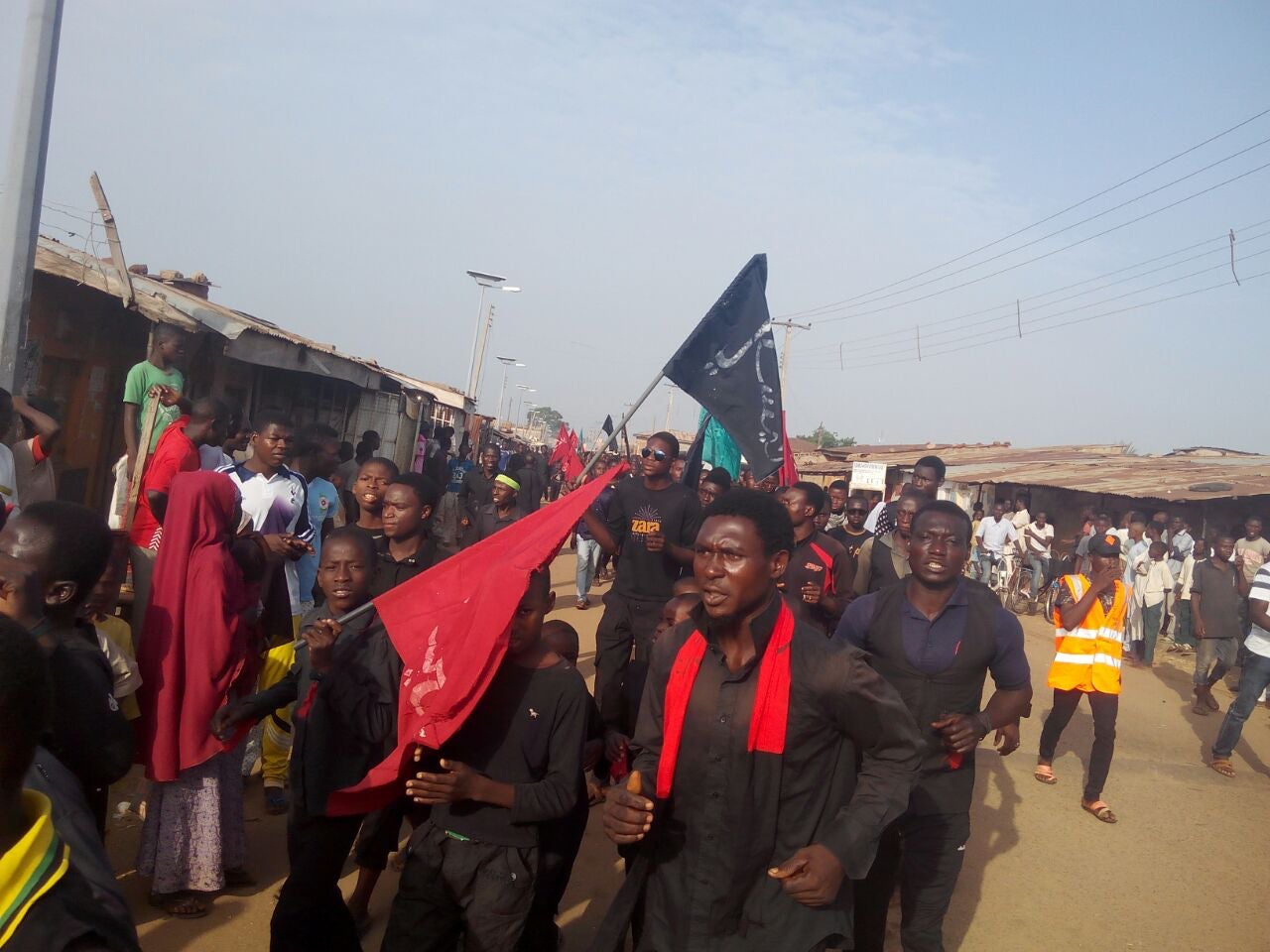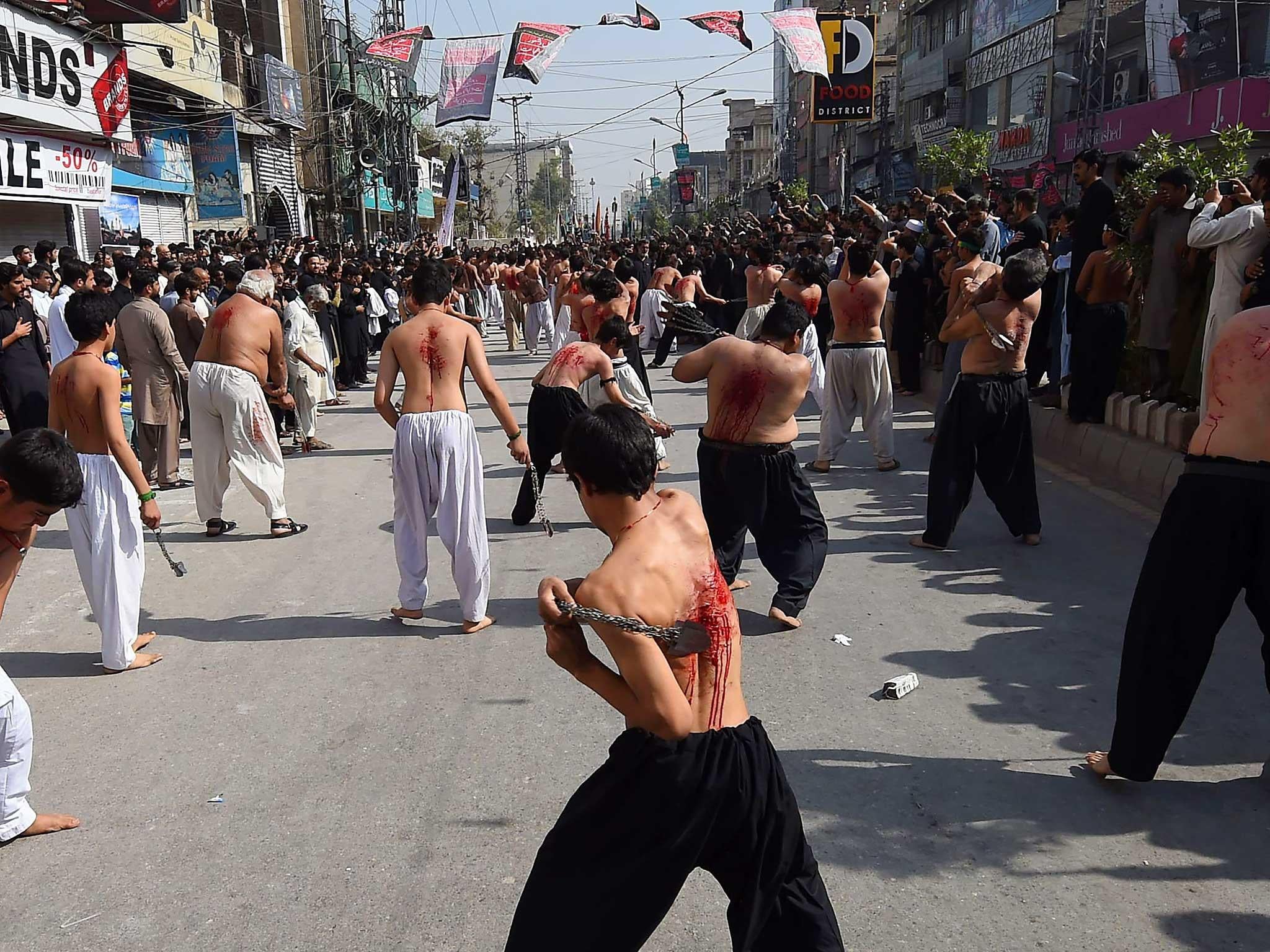Nine dead as Nigeria police open fire on Shia Muslim procession marking Ashura
Clashes in Funtua come after some northern states tried to ban Ashura processions

Your support helps us to tell the story
From reproductive rights to climate change to Big Tech, The Independent is on the ground when the story is developing. Whether it's investigating the financials of Elon Musk's pro-Trump PAC or producing our latest documentary, 'The A Word', which shines a light on the American women fighting for reproductive rights, we know how important it is to parse out the facts from the messaging.
At such a critical moment in US history, we need reporters on the ground. Your donation allows us to keep sending journalists to speak to both sides of the story.
The Independent is trusted by Americans across the entire political spectrum. And unlike many other quality news outlets, we choose not to lock Americans out of our reporting and analysis with paywalls. We believe quality journalism should be available to everyone, paid for by those who can afford it.
Your support makes all the difference.At least nine people are reported to have died after police opened fire on a procession of Shia Muslims marking the Ashura festival in Nigeria.
Graphic images posted to social media appeared to show at least three women among the bodies of those killed in the clashes in the town of Funtua, in the north-western Katsina state.
An eye witness to the clashes told BBC News the army and police had tried to block the procession, which commemorates the martyrdom of Hussein, a grandson of the Prophet Mohammed.
He said police then opened fire on the crowd, and while he had seen only eight bodies, many more were feared wounded.
The UK-based UK-based Islamic Human Rights Commission said it had received responds suggesting soldiers had used live ammunition and tear gas as clashes broke out.
Katsina, like some other northern Nigerian states, had tried to ban public Ashura commemorations.
The IHRC said it had also received reports of police setting fire to the Kaduna Markaz mosque in Kaduna city, the main mosque used by the proscribed Islamic Movement of Nigeria (IMN).
"Today's violence confirmed fears that the Nigerian authorities would seek to sabotage the annual commemoration of Ashura in the country," it said in a statement.
What is Ashura?
The day falls each year on the 10th of Muharram, the first month of the Islamic lunar calendar. This year, it corresponds with Tuesday 11 October, though the festival begins for observant Muslims at sunset on Monday, in some countries the day before is also a public holiday, and events can span a period of more than a week.
Ashura is marked by all Muslims, and commemorations can include a voluntary fast.
But the day is a major part of the religious calendar for Shia Muslims, for whom it is a solemn occasion to mourn the death of Hussein in 680 AD at Karbala in modern-day Iraq.

The day has become best-known around the world for public displays of self-flagellation, but observing Muslims also conduct reenactments of the martyrdom of Hussein and take part in parades and displays of fire-spinning.
Inevitably, the self-flagellation has been a cause for some controversy. Some religious leaders say the graphic scenes that result tend to paint Shia Muslims in a backward or negative light.
And there has been an effort in recent years to channel the annual blood-letting into a more constructive and progressive practice. Some leaders have suggested marking the day by donating blood.
Subscribe to Independent Premium to bookmark this article
Want to bookmark your favourite articles and stories to read or reference later? Start your Independent Premium subscription today.
Join our commenting forum
Join thought-provoking conversations, follow other Independent readers and see their replies
Comments